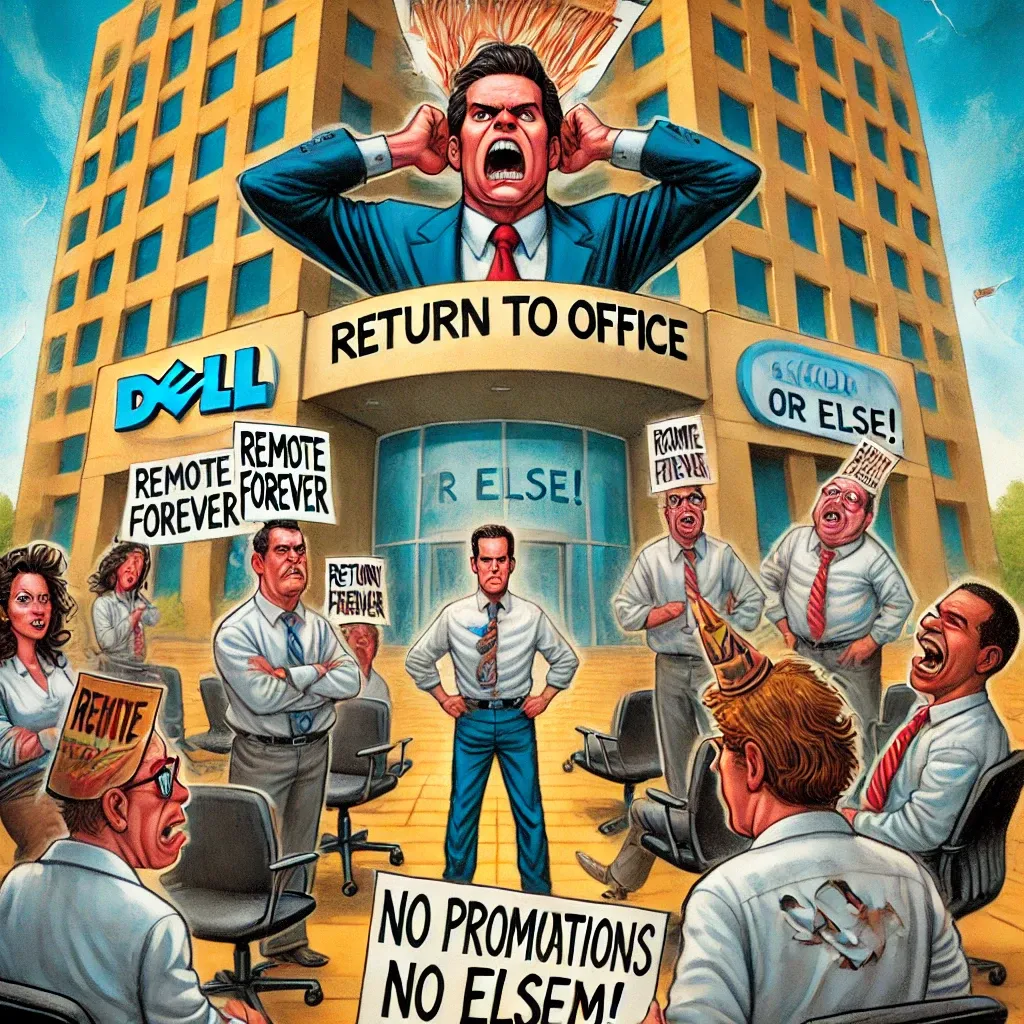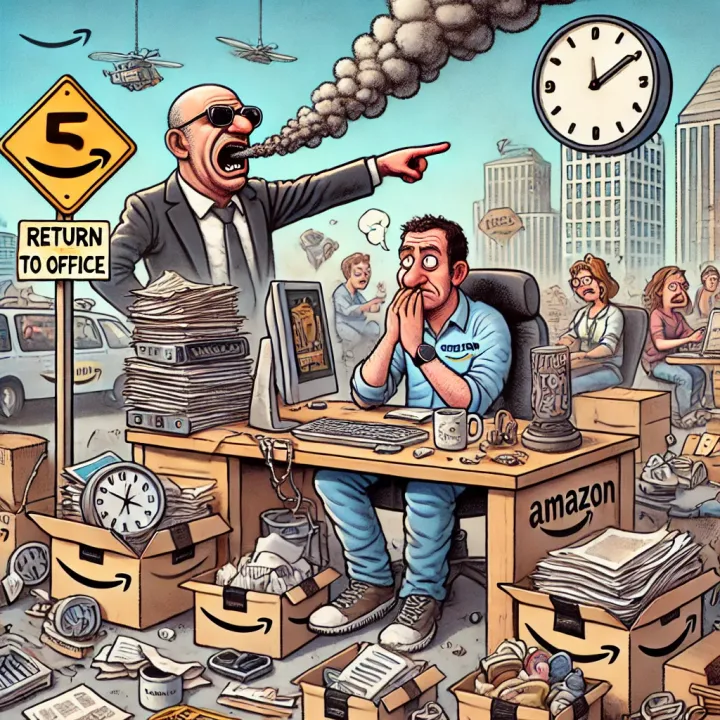Dell’s Hilarious Attempt to Strong-Arm Workers Back to the Office Fails Miserably

source: Dell said return to the office or else—nearly half of workers chose “or else”
Oh, Dell, you really thought you could bully your workers back into the office, didn’t you? In a laughably misguided attempt to restore its in-office culture, Dell laid down an ultimatum: come back to the office or kiss your chances of promotion goodbye. The response from nearly half of the workforce? A resounding “No thanks, we’re good.”
The Comedy of Errors
Dell’s brilliant plan required employees to classify themselves as either hybrid or remote. Hybrids were subjected to a draconian tracking system ensuring they were in the office 39 days a quarter. Remotes, on the other hand, were told they could no longer be promoted or hired into new roles. Shockingly, about 50% of Dell’s employees chose to stay remote, effectively flipping the bird to corporate coercion.
Let’s break this down: Dell really believed that the threat of no promotions would scare workers back to their cubicles. Instead, they discovered that employees value their time, well-being, and sanity far more than the empty promise of climbing the corporate ladder.
Reasons as Ridiculous as Dell’s Plan
The reasons employees chose to stay remote are as varied as they are valid. Some enjoyed the newfound free time and financial savings remote work offers—who wouldn’t prefer that over soul-crushing commutes and overpriced lattes? Others pointed out the sheer stupidity of returning to offices only to hop on Zoom calls with colleagues in other empty offices worldwide. Newsflash, Dell: forcing people into an office doesn’t magically make them collaborate better.
And then there’s the icing on the cake—some employees stayed remote simply because their local offices had closed. Yes, Dell tried to enforce an office return policy for offices that no longer exist. You can’t make this stuff up.
Dell's Delusional Dream
Dell’s executive management, in their infinite wisdom, believed that working together in a physical space was the key to greater collaboration and innovation. But here’s a reality check: dragging people back to the office doesn’t magically boost productivity or spark innovation. In fact, the Stanford Institute for Economic Policy Research found only a modest drop in productivity with remote work, offset by significant cost-saving benefits.
The Great Exodus
Now, Dell is facing another unintended consequence—many employees who chose to stay remote are actively looking for jobs at companies that aren’t stuck in the Stone Age. Dell, along with other dinosaurs like Apple struggling with similar employee revolts, might want to take a hard look at what workers really want.
The Punchline
So, what’s the takeaway from Dell’s fiasco? It’s simple: you can’t strong-arm your employees into compliance without facing backlash. Workers have tasted the sweet freedom of remote work, and they’re not about to give it up for the dubious privilege of being micromanaged in person.
Dell’s failed RTO mandate is a masterclass in how not to manage a modern workforce. As other companies watch this trainwreck unfold, let’s hope they learn a valuable lesson: respect your workers’ autonomy, or be prepared to watch them walk away.



